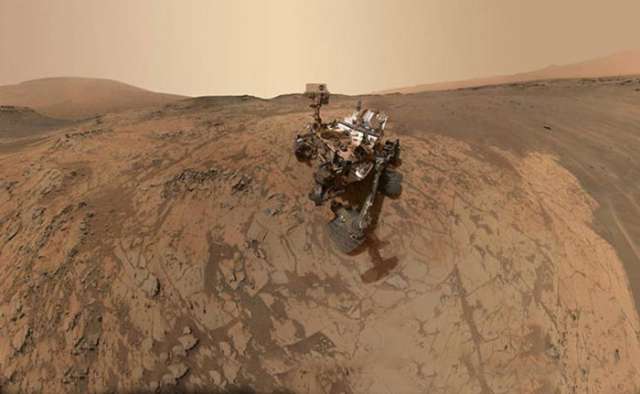Lujendra Ojha, currently pursuing Ph.D. at the Georgia Institute of Technology in Atlanta, is behind the key research suggesting water could be present on the Red Planet.
According to a CNN report, Mr Ojha is the primary author of the new paper in which the researchers say analysis of spectral imaging from a tool aboard the Mars Reconnaissance Orbiter (MRO) proves the streaks on Mars are, in fact, caused by salty water flowing downhill.
The salt content of the water is important because without it, the water would freeze in Mars` chilling temperatures.
"The water could be coming from subsurface ice, from salts attracting water from the thin Martian atmosphere or possibly bubbling up from an aquifer," added Mr Ojha along with co-researcher Alfred McEwen in new papers.
Mr Ojha originally discovered signs of water on the Martian surface when he was studying at the University of Arizona, Tucson, in 2011.
He analysed images from the High Resolution Imaging Science Experiment (HiRISE) camera on NASA`s Mars Reconnaissance Orbiter (MRO) to reach this conclusion.
NASA confirmed the possibility of liquid essential for life existence on Mars in a press conference on August 4, 2011.
"We still do not have a smoking gun for existence of water in RSL [recurring slope lineae], although we are not sure how this process would take place without water," Mr Ojha had said last year.
Recurring Slope Lineae (RSL) are seasonal flows or seeps on warm Martian slopes.
Mr Ojha will be accompanied, among others, by Jim Green, director of planetary science at NASA headquarters; Michael Meyer, lead scientist for the Mars Exploration Programme at NASA headquarters; and Mary Beth Wilhelm from NASA`s Ames Research Center in Moffett Field, California.
More about:
















































